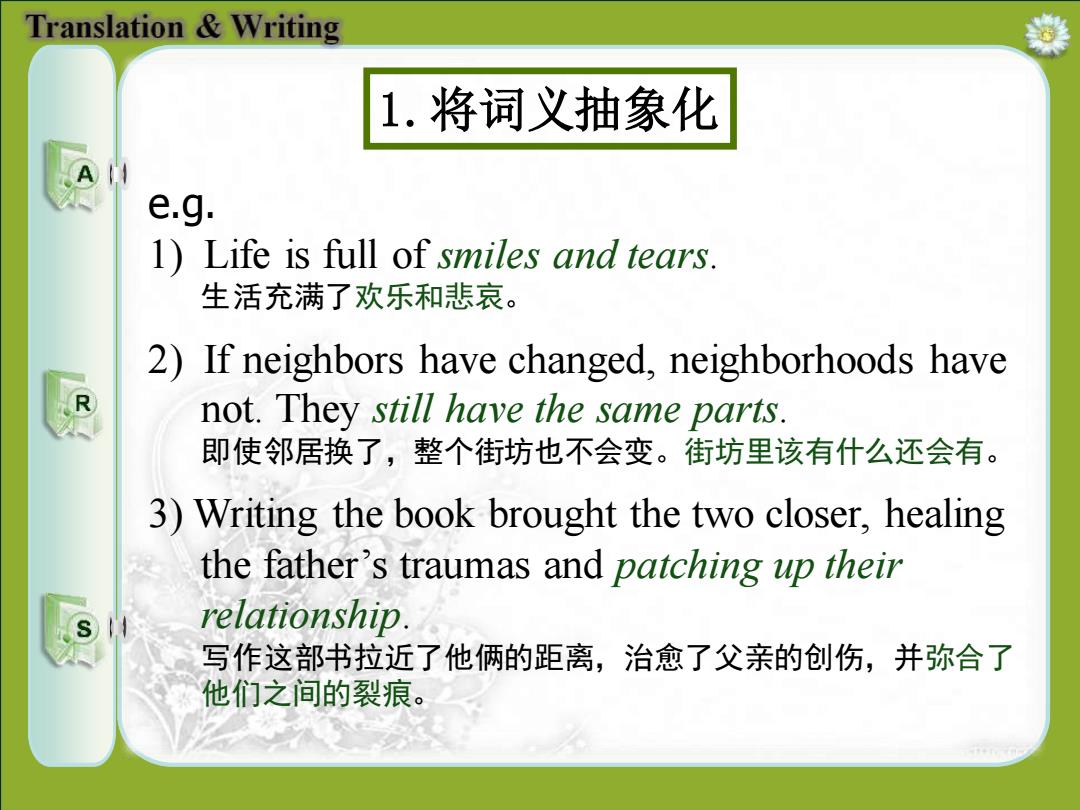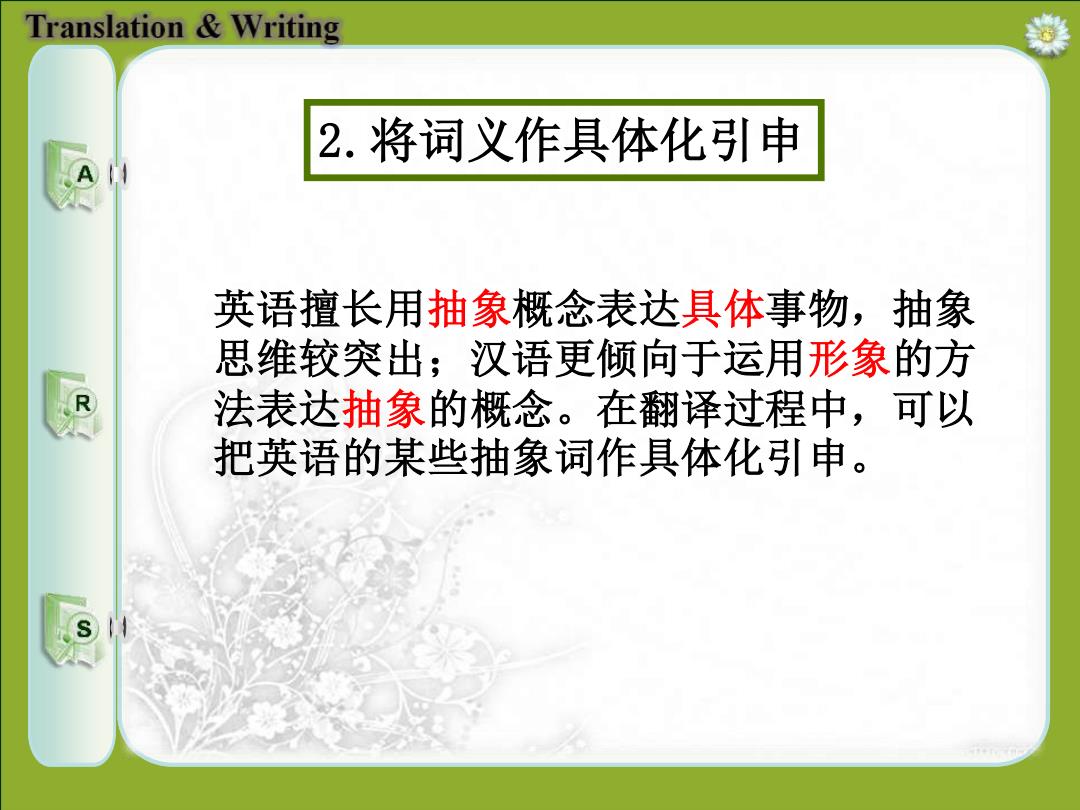
Translation Writing 1.将词义抽象化 e.g. 1)Life is full of smiles and tears. 生活充满了欢乐和悲哀。 2)If neighbors have changed,neighborhoods have not.They still have the same parts. 即使邻居换了,整个街坊也不会变。街坊里该有什么还会有。 3)Writing the book brought the two closer,healing the father's traumas and patching up their relationship. 写作这部书拉近了他俩的距离,治愈了父亲的创伤,并弥合了 他们之间的裂痕
e.g. 1) Life is full of smiles and tears. 生活充满了欢乐和悲哀。 2) If neighbors have changed, neighborhoods have not. They still have the same parts. 即使邻居换了,整个街坊也不会变。街坊里该有什么还会有。 3) Writing the book brought the two closer, healing the father’s traumas and patching up their relationship. 写作这部书拉近了他俩的距离,治愈了父亲的创伤,并弥合了 他们之间的裂痕。 1.将词义抽象化

Translation Writing 2.将词义作具体化引申 英语擅长用抽象概念表达具体事物,抽象 思维较突出;汉语更倾向于运用形象的方 法表达抽象的概念。在翻译过程中,可以 把英语的某些抽象词作具体化引申
英语擅长用抽象概念表达具体事物,抽象 思维较突出;汉语更倾向于运用形象的方 法表达抽象的概念。在翻译过程中,可以 把英语的某些抽象词作具体化引申。 2.将词义作具体化引申